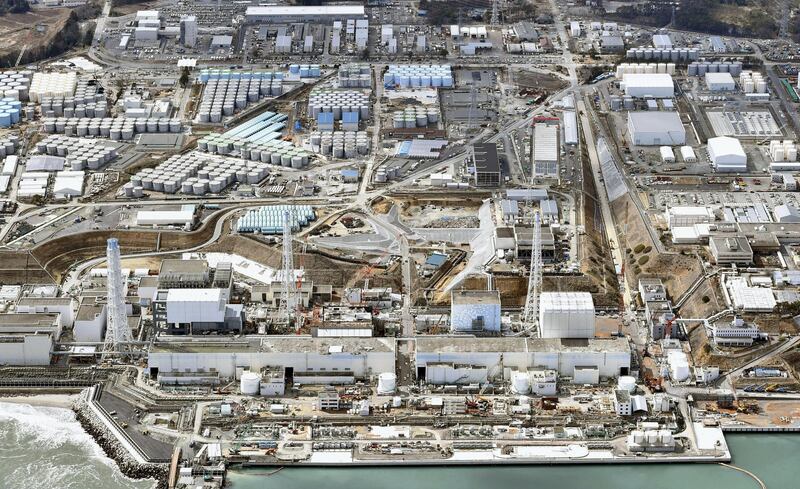As the landscape of global energy undergoes major changes, Japan is looking at ways to cope without nuclear power for now while re-introducing it at a lower rate in its future energy mix.
Following the tsunami in 2011 that hit Japan, killing almost 16,000 people and causing the shutdown of the Fukushima power plant in the worst nuclear accident since Chernobyl in 1986, the country is now studying different ways to generate energy.
With cataclysmic changes happening in the energy world and the Arab Spring disrupting oil supply from Libya to Japan, new measures need to be put in place.
“Japan does not have indigenous energy sources - no oil and no gas - so we are very much concerned about our energy security,” said Misako Takahashi, director of economic security at the Ministry of Foreign Affairs in Tokyo.
“We consider nuclear as a semi-indigenous energy source but, otherwise, all our energy needs to be transported by sea. But we see a completely new picture and a shift in supply.”
Natural gas has started playing more of a role in the country’s energy mix.
“When the earthquake happened, all our nuclear power plants gradually went into shutdown,” Ms Takasahi said. “Since 2012, the share of nuclear dropped from 20 per cent to zero, which was a very dramatic change for the energy mix. Natural gas and coal substituted the absence of nuclear in the meantime and Japan paid a high price for that.”
As a result, its dependency on fossil fuels for power generation rose from 62 per cent in 2010 to 86 per cent two years later.
“The liability of Japan’s economic development is that we don’t have any indigenous energy sources, so we have to import all the energy we need for our economic growth,” she said. “Approximately 90 per cent of our primary energy and key minerals are imported, which is why we place a high priority on keeping the international energy market open. No country can be an energy island because the world is so integrated - we have to achieve global energy security to be able to achieve our own.”
________________________
Read more:
[ Technology has major role in reducing carbon emissions, Japanese experts say ]
[ Drastic shift in energy consumption needed to reduce carbon emissions ]
[ Renewables will provide one third of global energy by 2040, energy agency says ]
[ IAEA report: Nuclear power expansion to slow before growing again ]
[ Special report: UAE ready to join the nuclear power club ]
[ Japan ruling shifts LNG balance of power to buyer ]
________________________
Of the 54 nuclear reactors that were being operated or were under construction in Japan, only four are currently in operation. And although the nuclear power plant in Fukushima has been inspected and is ready to come back online, the prefecture’s governor is hesitant to give his approval due to a reluctance among the public.
“Politically, it’s a bit challenging for them to restart it,” Ms Takahashi said. “Our plan is to restart our nuclear plants but the problem is public acceptance. One of the issues for the upcoming elections is nuclear policy - it’s still very controversial for us.”
Even though wind and solar energy are increasingly productive, their intermittency leaves them too unreliable to use on their own.
“For us, nuclear is very important as it can be stored and the supply is quite stable,” Ms Takahashi added. “We believe we can overcome the downsides of it, like waste disposal and public acceptance.”
Energy prices surged following the shutdown of the Fukushima plant. “The disaster was mainly shouldered by Tepco [Tokyo Electric Power Company] and we promised a certain price for renewables to ensure more of their deployment,” she said. “Energy security is our highest priority. The Japanese public understands nuclear might cause a catastrophe - it’s cheaper for them but risky, so we need to find a balance for them to accept and the debate is still ongoing.”
The Japanese government still believes nuclear energy will be one of the key energy resources “but its operation is based purely on safety,” said Tomoaki Ishigaki, director of climate change at the ministry.
“It has to be backed by public support and safety, even if it helps in tackling climate change.”
According to Japan’s foreign minister, Fumio Kishida, energy and resource security is an issue that concerns not only Japan but the entire world.
“It can only be achieved via mutual dependence, given the changes in the global energy landscape,” he said in a policy speech. “Towards realising this vision, we have set the core of Japan’s roadmap for a strengthened energy and resource diplomacy.”






